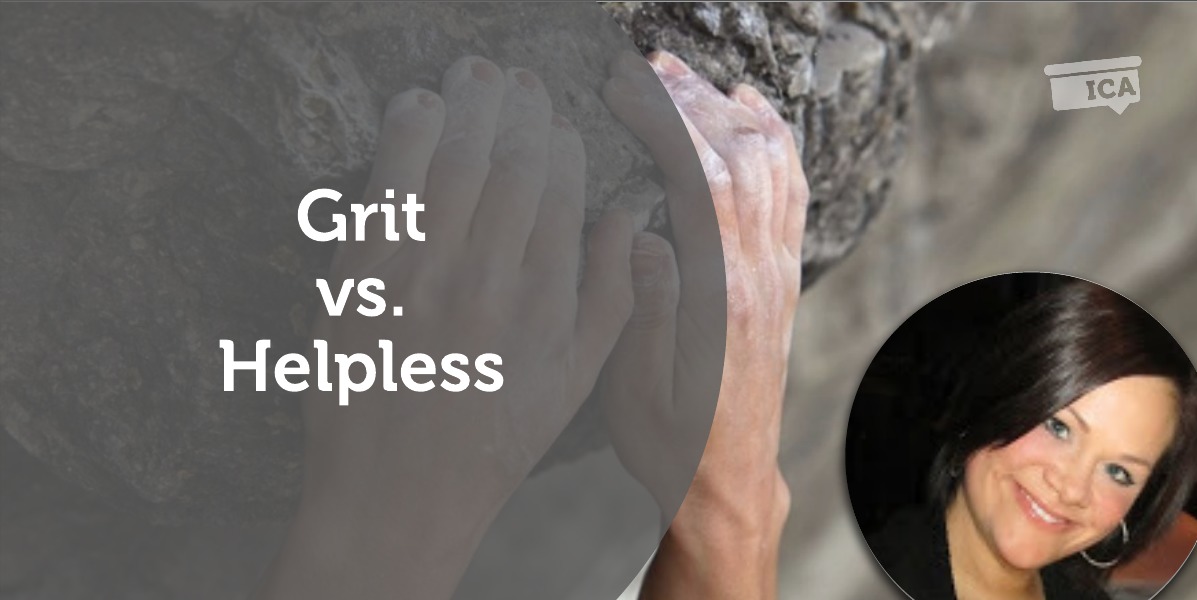 A Coaching Power Tool Created by Bethany Winsor
A Coaching Power Tool Created by Bethany Winsor
(Transformational Coach, UNITED STATES)
Introduction
When someone comes through a trying experience, it is common for them to feel in some way damaged and not the same as before. This power tool – Grit vs Helpless, seeks to help support a way forward for those who feel stuck or held back in this place of loss, hurt, fear, and damage. Coaching can be instrumental in creating awareness around an existing perspective of helplessness and support a shift to a perspective of grit.
Helpless
Being helpless is defined as unable to help oneself; deprived of strength or power; powerless; incapacitated (1). Helplessness refers to an individual’s inability to control the situation when he or she has the opportunity to do so. Helplessness is the belief that there is nothing that anyone can do to improve a bad situation. In many ways, helplessness is a belief that control over the situation or its outcomes is impossible. Like all beliefs, helplessness is learned (2).
A significant experience that makes someone feel this way could be an extraordinarily stressful event that leaves them feeling disempowered, overwhelmed, insecure, and often fearful. These experiences could include (3):
It is important to remember that it is not the objective circumstances that determine whether an event is significant enough to leave a person feeling helpless, but rather the person’s subjective emotional experience of the event. A person viewing events from this perspective could express doubt in their ability to move on or overcome events, as well as have anxiety about the uncertainty and lack of safety they now feel. While they may describe how they feel after living through an event as “helpless,” underneath that is often doubt and fear of how they will fare as they move forward out of this place of inertia.
Grit
An alternate, more empowering, perspective is that of grit. Psychologist Angela Duckworth defines grit as perseverance and passion for long-term goals. Grit entails working strenuously through challenges, maintaining effort and interest over years despite failure, adversity, and plateaus in progress. Duckworth writes, “The gritty individual approaches achievement as a marathon; his or her advantage is stamina. Whereas disappointment or boredom signals to others that it is time to change trajectory and cut losses, the gritty individual stays the course (2).” The attributes of grit include determination, perseverance, and ability to set clear goals, and patience and flexibility in handling obstacles. Grit also reflects a capacity for human connection, collaboration, and overall inner strength that helps power a person to reach goals (3).
Coaching Application
In the case of Michelle, a 27-year-old college graduate who survived cancer in her mid-20s, living through the experience of treatment and survival left her struggling to find her new normal. Getting a cancer diagnosis that slows you down at a time in life when a person should be having a series of great firsts has left her feeling behind and damaged. While many of her friends were buying homes and starting families, Michelle was moving back home with her parents and paying off medical bills.
Michelle has expressed feeling uncertain and a bit fearful about her future. The process of coming out of the other side of treatment has often plagued her with questions about how much to live for today versus planning for her future. At times, the idea of living for today has held her back from moving forward and seeking to achieve bigger goals in her life.
Michelle has discussed wanting to pursue additional graduate-level education, but she feels helpless about the toll that treatment has taken on her body, including late-term treatment effects of brain fog and memory loss. This treatment consequence has shaken her confidence in her ability to do well in school at the high-functioning level she was accustomed to before having cancer treatment. She has some perfectionist tendencies that are keeping her from being able to take the risk, and she is stuck in this belief that she can’t do much to change her after-chemo brain and its ability to keep up with new learning.
Grit vs Helplessness Coaching Questions
Conclusion
Through a coaching process, Michelle was able to gain some self-awareness around her limiting beliefs, and she realized that any advancement toward her future is a win after surviving cancer. She considered other times in her life where she showed the characteristics of grit, and they had carried her through other challenges before. Approaching her challenge from an empowering perspective of grittiness enabled her to reflect on her perfectionist tendencies and she reasoned that she doesn’t have to be perfect in the pursuit of her goals and that she can be kind to herself, especially after all that she had been through.
Works Cited
Helpless – Dictionary.com. Retrieved from: https://www.dictionary.com/browse/helplessness?s=t
Wallston, K. “Control Beliefs: Health Perspectives” International Encyclopedia of the Social & Behavioral Sciences, 2001. Pages 2724-2726.
Robinson, Lawrence, Melinda Smith, and Jeanne Segal. “Emotional and Psychological Trauma,” HelpGuide.org. February 2020. Retrieved from:https://www.helpguide.org/articles/ptsd-trauma/coping-with-emotional-and-psychological-trauma.htm
Duckworth, Angela L., et al. “Grit: Perseverance and Passion for Long-Term Goals.” Journal of Personality and Social Psychology, vol. 92, no. 6, June 2007, pp. 1087–1101. EBSCOhost, doi:10.1037/0022-3514.92.6.1087.
Barile, Nancy. “Is ‘Getting Gritty’ the Answer?” Educational Horizons, vol. 93, no. 2, 2014, pp. 8–9. JSTOR, www.jstor.org/stable/24635454. Accessed 2 Dec. 2020.